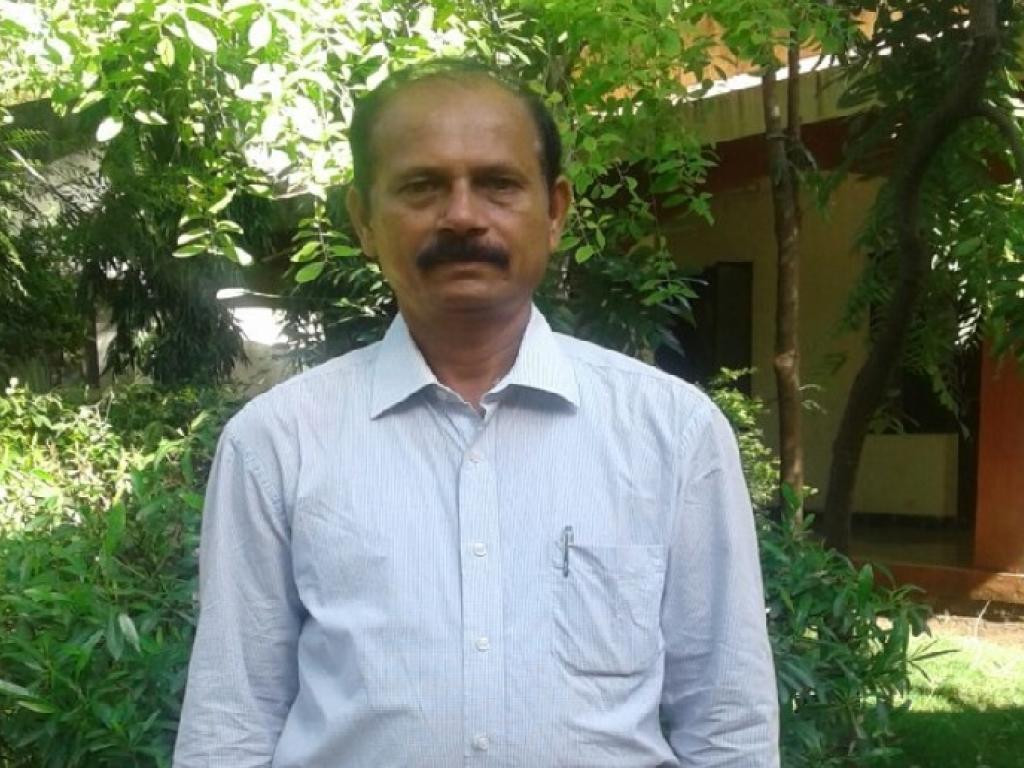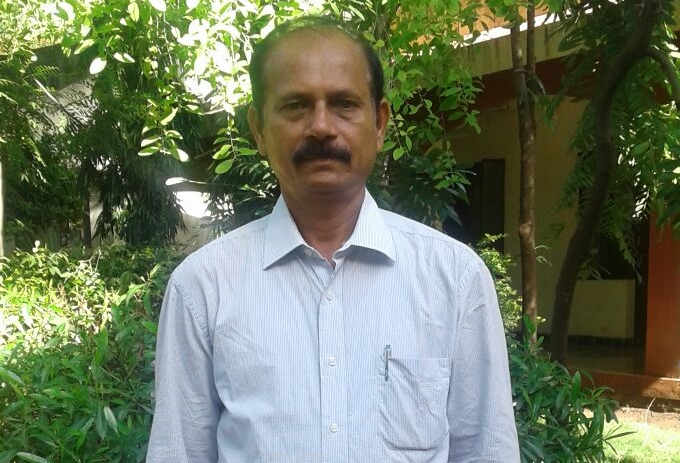Shivshankar – IIHS’s bridge to the rural communities of Kolar District

By Arjun Srinivas, ASSAR South Asia researcher, Indian Institute for Human Settlements
Mr Shivshankar from Mysore Resettlement and Development Authority (MYRADA) is a programme officer for Kolar, a district in the state of Karnataka that is a key site for the ASSAR India research led by the Indian Institute for Human Settlements (IIHS). Situated at a distance of 70km from Bangalore, it is a district that has been adversely affected by declining and erratic rainfall over the past couple of decades, and has consequently seen large-scale migration and transition in livelihoods. MYRADA has been an instrumental partner of IIHS and helped facilitate much of the field research.

“When we were just starting off our research in Kolar, way back in November 2015, one of the first few people we met was Mr Shivshankar,” Chandni Singh, a researcher at IIHS, recalls. “The impromptu visit turned into a two-hour-long conversation about his experiences in the district: from drought incidence and changing farming practices to migration patterns and local health issues. Many of his insights across the year-long fieldwork, became key research themes. Mr Shivshankar was also most helpful in keeping our data collection on track – from recruiting surveyors to making sure they met deadlines. Overall, conducting the research in Kolar was greatly facilitated by him and I look forward to collaborating with him for future work.”
Shivshankar specialises in the area of watershed management, which is of critical importance in the Kolar district since it has no source of perennial irrigation. He leads the MYRADA-Spoorthy Training Centre in Bangarpet Taluk, Kolar, that conducts capacity building programmes for various developmental organisations, especially on watershed management. He also oversees various social programmes throughout the district and was therefore IIHS’s single point of contact for most operational and contractual particulars.
Shivshankar prides himself on his direct involvement with the communities. Having spent 15 years working in Kolar District, he has a comprehensive and nuanced understanding of the community’s challenges with regard to climate change and natural resource management. His support was essential, both in terms of providing a local context to the research, as well as operationally in terms of co-ordinating the focus group discussions and the household surveys.
Developing insights and solutions
Regarding local climate change, he says: “There has been a considerable change in the climatic patterns as compared to 10-15 years ago. Rainfall is declining and there are more frequent dry spells. The impact is heightened due to the erosion of traditional techniques of water management and intensive agriculture.” He emphasised the need for natural solutions such as biomass activities and block plantations as key adaptation interventions.
“We decided to collaborate with the ASSAR project since you are researchers who can develop insights and solutions,” Shivshankar says. “We work and interact with the community, and our expectation is that with the knowledge generated, you will help us help the communities.” He adds that the technical skills of the staff were enhanced through the household surveys, which were administered digitally through electronic tablets as part of the ASSAR project.
He concludes by saying that his expectation from the ASSAR team is that the insights generated are shared with MYRADA, and also hopes that the recommendations could be used to design some developmental activities that can be initiated with the community.
Bridge to the community
“Having personally worked with Mr Shivshankar, and co-ordinated with him for most operational aspects of our research, I can vouch for his professionalism and helpful disposition. He extended utmost co-operation to us throughout the duration of our fieldwork, and helped introduce us to key informants. Furthermore, the local MYRADA staff always accompanied us on the field and served as a bridge to the community. In this regard, we benefited from the credibility of the organisation, as MYRADA was easily recognisable for the communities we worked with.
“We hope to continue our association with MYRADA and Mr Shivshankar, as we head into the final phases of the project,” ends researcher Arjun Srinivas.